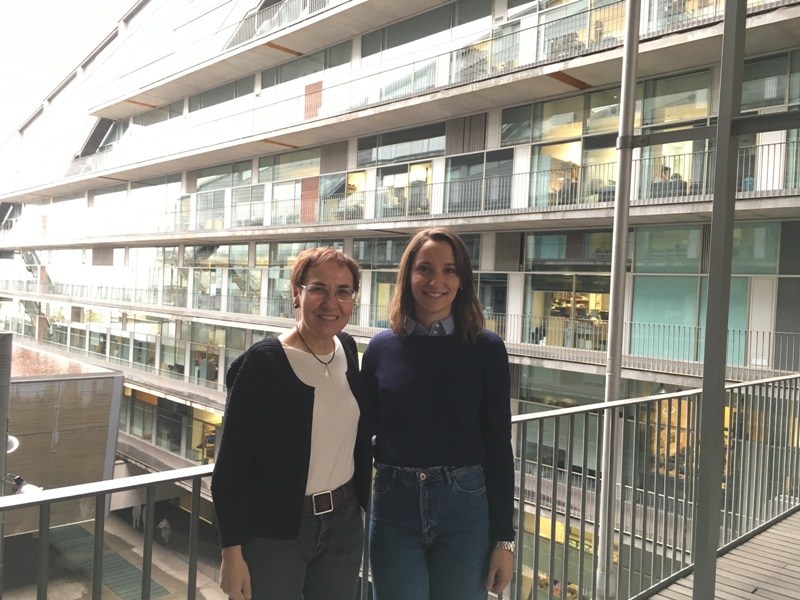“To keep the body eternally young seems impossible, for the time being”
“To keep the body eternally young seems impossible, for the time being”

Pura Muñoz-Cánoves and Laura García-Prat are leader and researcher, respectively, of UPF’s Cell Biology research group. Their work reveals why the tissues of the body deteriorate with the passage of time, and how to rejuvenate them. These findings have led them to win the Vanguardia de la Ciencia prize, awarded to the most important research conducted in Spain according to the readers of La Vanguardia.
Muñoz-Cánoves has recently received a grant from the European Research Council (ERC), awarded to senior researchers conducting frontier science. García-Prat is currently with the Princess Margaret Cancer Hospital attached to the University of Toronto (Canada), where she is working as a postdoctoral researcher on a project on childhood leukaemia.
This is the second time you have won the Vanguardia de la Ciencia science prize. What does this award mean to you and the Cell Biology Group?
If the first time it was a surprise, this second time it’s an even bigger one. We are very happy for the recognition and also, it has meant we could see each other again and celebrate it.
Why do you think the readers chose your research as the most important conducted in Spain in 2016?
Our studies focus on ageing. All the studies selected by La Vanguardia were very relevant, but in the end, ageing is something that will affect us all. People want to live not only longer but with better quality, and perhaps that is why our research has been more appealing.
of life
In addition, Pura, you recently received significant support from the European Research Council.
From the scientific point of view, it was one of the most exciting moments in my career. The endorsement by our colleagues in the field, who are the evaluators, is very important for me, because they are the ones who can best appreciate our work. Economically the grant means being able to work well and address interesting questions that are often costly.
What does your research focus on?
We are studying the mechanisms that maintain muscle stem cells, called satellite cells, in the quiescence phase, a state in which the cells are “asleep” waiting to repair any damage that may arise. We want to ascertain the molecular mechanisms that maintain this state and that allow the cells to regenerate the muscle.
Could you explain your latest discoveries?
About two years ago we developed the hypothesis that autophagy, a process required to eliminate all the residual substances of the cell, is essential in ageing. We saw that this process was active in the satellite cells and that if we eliminated it, the cell began to accumulate toxic substances that affected its functioning. We then analysed old cells and saw that this process of autophagy was depleted.
Why do we age?
There are several theories, although none is proven. It is most likely due to the accumulation of faults in the cells. Our bodies’ cells constantly suffer aggressions and must act against them. For a while, the cells can cope with stress and respond to the aggressions to which they are subjected: infections, radiation, etc. But there comes a point of no return when the cells’ capacity to respond is exhausted: that is when ageing begins.
Can we delay ageing?
We have already delayed quite a lot. At the beginning of the 20th century, the average life expectancy was about 30 years less. But in those days there were very few diseases related to degeneration, perhaps because there was no time for them to develop. If the average lifetime was around 50-60 years, there were far fewer cases of Alzheimer’s or cancer. Now other diseases develop because we live longer. We are already living long lives, the current challenge is to improve our quality of life.
Are there natural or artificial ways to prevent ageing?
We know that restricted calorie intake and physical exercise induce autophagy and therefore delay ageing. But this does not prevent but merely delays ageing. In our work we use rapamycin, a drug that activates autophagy and delays ageing in mice.
Will ageing ever be conquered?
No, or at least, not in our lifetime. We can extend the functionality of certain specific organs, but to keep the entire body young eternally seems impossible, for the time being.
